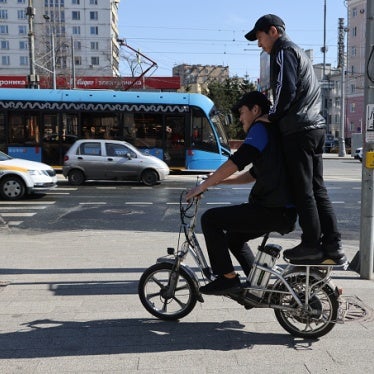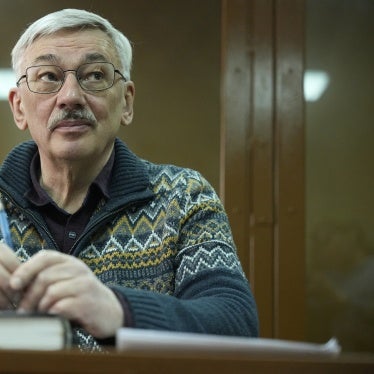I entered the bustling Moscow Metropolitan subway system for a meeting with representatives from the Moscow City Department of Transport and the Moscow City Department for Social Protection. Our metro visit was unusual, in that it only involved traveling down the steps leading to the subway platform.
But the journey was nevertheless eventful as it lasted nearly an hour.
Why did it take so long? We were led by a young man named Pavel, who is blind. He showed us in great detail how difficult it is for him to navigate Moscow's subway and what actions need to be taken in order to improve it.
As Pavel struggled at the top of the stairs, the officials rushed into the station without noticing that the top step didn't have tactile tiles on it to warn people who are blind or have low-vision of a staircase.
In response to concerns from metro riders like Pavel and others, the Moscow Metro recently created aCenter for Passenger Accessibility, a promising initiativethat enables those who need assistance navigating the subway stations to make a phone call or make an online request for an attendant employed by the metro. For people with physical disabilities, the metro attendant would offer assistance but only at those stations where the lifts are located (21 out of 192 stations). Pavel noted that this initiative is helpful for blind people or people with low vision, but that the end goal should be to enable individuals to be able to use the Metro independently, without assistance.
The right thing to do is to make all stations more accessible for people of all abilities.
It would be naive to expect that one of the world’s oldest and largest subway systems could be made accessible to people with disabilities all at once. But the Moscow authorities can and should be doing more. For example, even some newer stations lack working elevators and reflective and tactile strips near platform edges, which would enable people like Pavel to navigate platforms without risk of falling onto the tracks.
Taking the time to meet with Pavel to learn first-hand about the accessibility needs of people with disabilities shows that the authorities are listening and concerned, as they should be. With the number of elderly people and people with disabilities in Russia increasing each year, making the metro more accessible will mean people of all abilities can engage more in all that Moscow has to offer.









